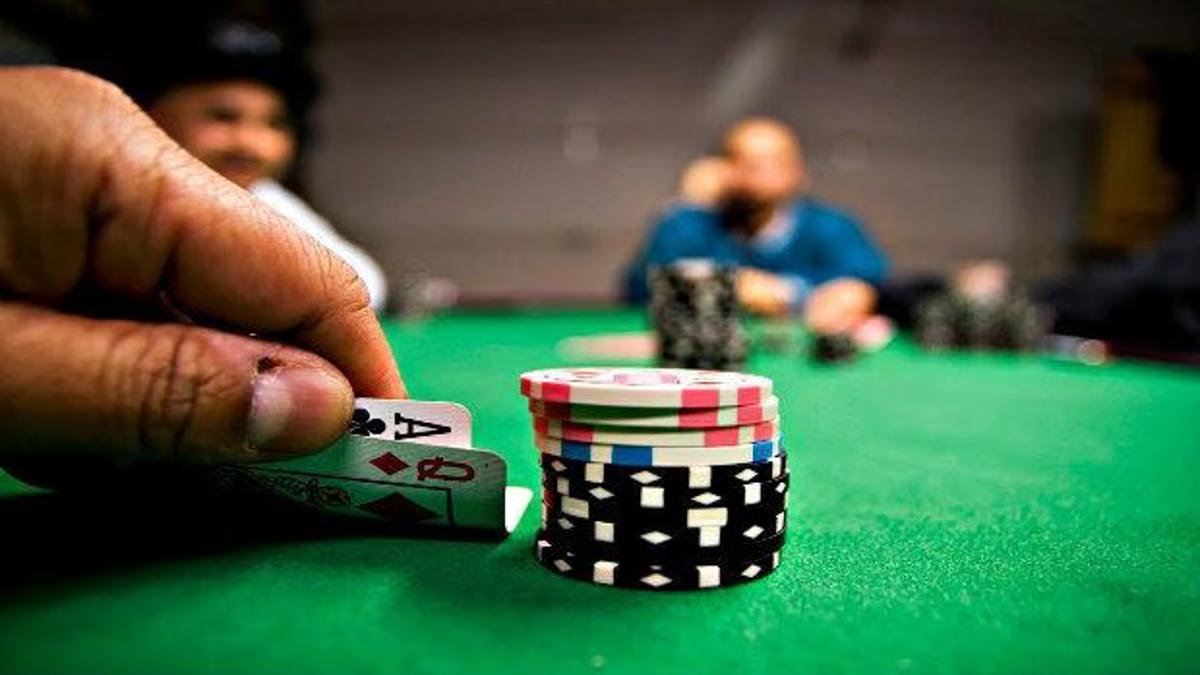Poker Tournaments: Short Stack Strategy

Short stack strategy is one of the easiest poker strategies to learn and an essential one for any beginner player. There will always be times in your poker playing career when you are short-stacked. In fact, it will probably happen at some point in most tournaments – so understanding the situation (and knowing how to play it in a tournament) is a very useful skill to have in your arsenal.
What Does Short-Stacked Mean?
Simply put, you are short-stacked if you have a relatively low number of chips. Having a short stack restricts what you can do and means that other players with larger stacks will see you as an easy target to eliminate, so you need to have a strategy that can help you turn the situation in your favour.
In the context of a poker tournament, turning the situation in your favour means not giving up and playing recklessly because you feel you have no chance of gaining the ground back. Remember that in tournament play, your individual chips become more valuable as your stack gets shorter. This is because your chips represent your 'equity' in the tournament – your potential share of the prize pool. So as long as you still have chips (even a short stack), all is not lost.
Assess the Situation
If you start to sense that your stack is lower than those of the other players at the table, it's time to assess the situation and determine just how short-stacked you are. Ask yourself these basic questions:
- What size is your chip stack compared to those of others at your table?
- What size is your chip stack compared to the size of the blinds?
- What size is your chip stack compared to the average stack?
- How many hands can you look at before you 'bleed to death' (figuratively)?
A short stack is more defined by the size of your stack relative to the blinds rather than relative to the stack sizes of your opponents. There are varying degrees of short stack, but generally speaking you are considered short-stacked if you have between 10 and 20 big blinds in front of you. The shorter your stack, the fewer options you have in the game.
How to Play With a Short Stack
When you're short-stacked in a poker tournament, you're restricted in terms of what you can do at the table and the types of plays you can make. It really boils down to two core options: fold or move all-in.
Exactly how you play depends on just how small your stack is. If you're down to 10 big blinds or less, you have little option but to go all-in whenever you have a strong (or even moderately strong) hand. Going all-in on a good situation is a risk you often have to take in order to potentially double up and increase the size of your stack – putting you back in contention.
Although this risk-taking may seem counter-intuitive in an already sticky spot, it's the most logical way to play. However, it's important to recognise the situation early and not wait too long (or for the perfect hand) before you act: otherwise you could see all your fold equity (i.e. the equity you can expect to gain if your opponents fold) dwindle away, leaving your short-stacked even if you win.
An all-in bet with just a few chips (because you stalled too long) won't present a significant enough threat to the bigger stacks around the table, so avoid playing speculatively, commit as soon as you have a decent hand (and before you lose too many chips), and finally: aim to be first into the pot to force your opponents into a decision to call or fold.
In Summary
Having a short stack doesn't have to mean crashing out of a tournament. Though many of the more advanced elements of poker are out of reach, a tight, aggressive strategy can put you back in the game fast. The most important things to remember are that you should try and be first in the pot, don't spend time speculating, and bet aggressively before or on the flop. Your aim is to get a strong hand, go all-in and double up, so that you can build your stack, keep yourself in the game, and hopefully make it to the later stages of the tournament.










